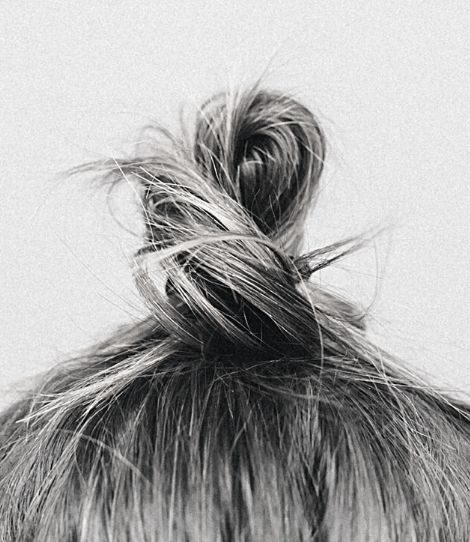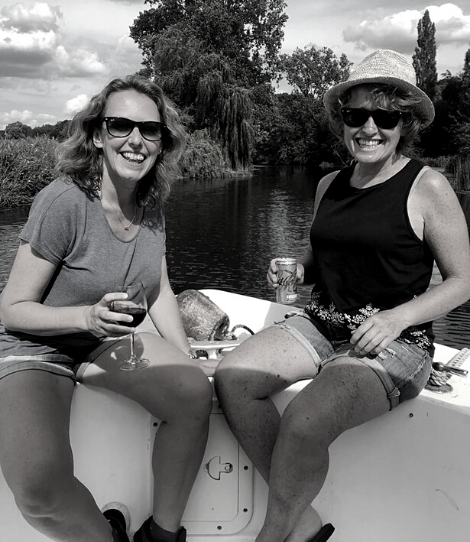What does the word incontinence say to you?
‘I think about someone who can no longer look after themselves.’
‘It’s those big, Tena nappies you see in Boots.’
‘It’s something nobody wants to talk about.’
‘It sounds like ‘incompetence.’’
These are just some of the comments that came up in a recent focus group I ran talking to a group of women in their forties and fifties about incontinence.
All of them lived with some form of bladder weakness or other.
All felt embarrassed about it.
None of them knew why they suffered with the occasional leak when they ran for the bus or went out for a run. For the majority leaking wee was just accepted as part and parcel of having children and getting older.
One of the reasons women tend to experience bladder weakness as they age is because of failing oestrogen levels. Women need oestrogen for healthy tissue in the bladder and the loss of oestrogen during menopause makes the tissue in the bladder more sensitive and delicate. It also impacts on the lining of your urethra, the tube that empties urine from your bladder, and finally your pelvic floor, the group of muscles that supports both your urethra and bladder. Generally there are two types of bladder weakness: Stress incontinence: where you leak when your bladder is put under pressure i.e. you suddenly cough or laugh. The other type is: overactive bladder which is usually caused by some kind of irritation to the bladder that causes symptoms of needing to go for a wee more often or without much warning.
1 in 3 older women are impacted by bladder weakness in some way. And whilst subjects like the perimenopause and menopause are becoming more widely talked about, bladder weakness has remained the uneaten prawn sandwich at the buffet, the one nobody wants to touch or think about.
Bladder weakness isn’t… sexy.
When a woman starts to experience bladder weakness it can make her feel like she’s no longer in control. It also impacts on how she feels about herself sexually. Gaining a few midlife pounds is one thing and the frown lines can be navigated but peeing herself?
We all fear the stigma of becoming – ‘the old woman who stinks of wee’. It makes many menopausal women feel older than they actually are. It impacts on where they sit in a restaurant (near the toilet please), what kind of social invitations they accept (no lengthy theatre shows unless it’s Benedict Cumberbatch) and even the ways they choose to keep fit (so opting for more gentler forms of exercise even if it isn’t what they fancy and they’d prefer to run around).
‘I just bung my liners in the bottom of the shopping basket and get on with it,’ one woman said to me in the focus group, ‘There’s nothing I can do anyway.’
She’d been living with incontinence for six years.
‘I think it’s because I had such massive babies. It must have done some damage down there.’
And this is one of the other issues that comes up in conversations about leaks and bladders. Women don’t know their own bodies. They’re used to being prodded and poked by doctors, maybe having been through labour and the various investigations that carrying children involves, but nonetheless lack a good understanding of what happens in their own bodies and why.
Nobody told women that bladder weakness is remarkably common (or gave them any tools they could use to support them through it). They may (just about) be able to point to an image of their bladder on a cross sectional diagram of the body (many would struggle to even do that), but the majority fail to understand the role the pelvic floor plays in helping support healthy bladder function.
What’s the classic saying? Knowledge is power.
It’s not about making incontinence sexy (this would be a big ask) but is instead about raising awareness, reminding women that it is something that happens a lot but at the same time is not something they have to put up with.
The next step, once conversations start flowing (excuse the pun), is to provide accurate information on pelvic floor exercises, how to integrate them into your routine, ensure you’re doing them properly and other factors such as diet and stress which can also impact on your bladder and how it behaves.
Jude, a healthcare company that provides clinically trialled products for bladder weakness also has a brilliant community of women on Facebook who laugh in the face of incontinence. Like Queenagers everywhere they are not afraid to talk about anything. Most importantly they are working towards solutions through arming themselves with as much knowledge as possible.
By Anniki Sommerville
For more info about Jude check: https://www.wearejude.com
To join the Jude FB community: https://www.facebook.com/groups/judeandfriends
More on health
View All
What hair loss in midlife was like for me
Chrissy Iley started to experience hair loss…and went on a journey to figure out what was happening to her locks.


